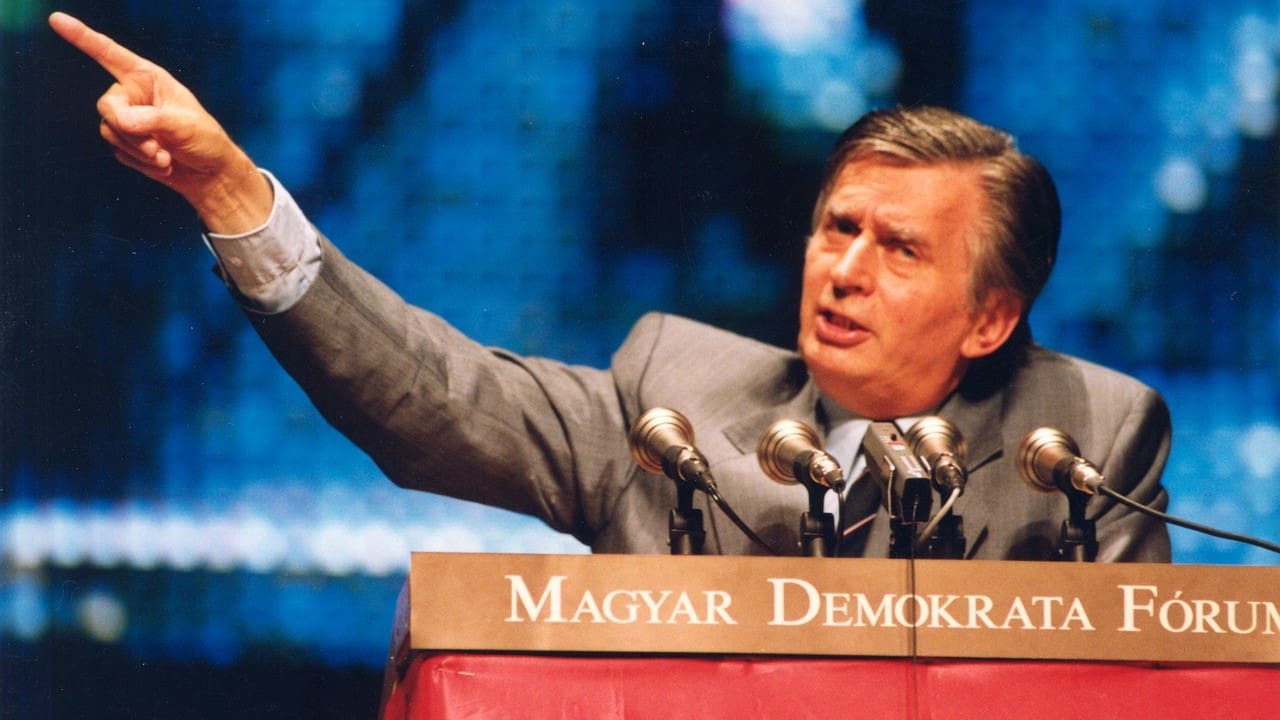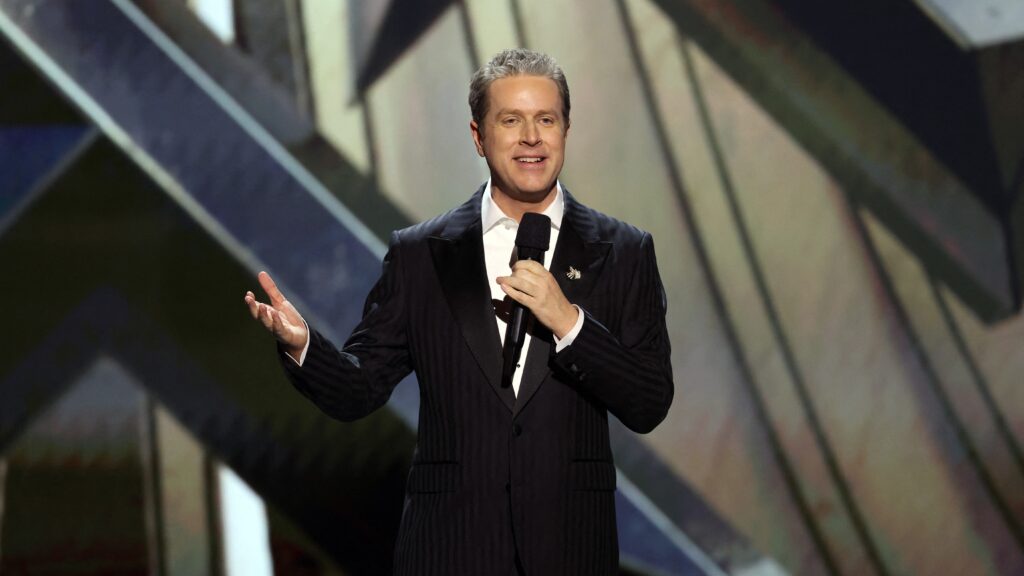On 8 April 1932, 92 years ago, József Antall was born. He became the first freely elected Prime Minister of Hungary after the fall of communism. Though his untimely death on 12 December 1993 prevented him from completing his mandate, his life and work have left an indelible mark on Hungarian politics.
József Antall was born in Budapest on 8 April 1932, the second child of his parents. He learned the value of community responsibility and dedication to Hungary from the personal example set by his father, Id. József Antall, a ministry official. His father served in various ministries, contributing significantly to social policy and poverty alleviation during the 1930s. Between 1939 and 1944, he held the role of government commissioner, aiding Polish Jews seeking refuge in Hungary. By 1944, he had orchestrated the safe passage of over five thousand Jews to the West.
After completing his studies, Antall commenced teaching at the Eötvös József Secondary School in 1955. During the 1956 revolution, he played a significant role by forming a revolutionary committee, while also participating in the reorganization of the Independent Smallholders, Agrarian Workers and Civic Party (FKGP). However, due to his political views, he faced regular harassment and detention by the authorities. In 1957, he transitioned to teaching at the Toldy Ferenc Gymnasium. In 1959, he was banned by the authorities from further teaching.
In the years that followed, Antall transitioned to various roles, including that of librarian, researcher, and eventually director of the Semmelweis Museum of Medical History. Throughout this period, spanning until 1989, Antall remained under constant surveillance by the state security agencies due to his connections with the smallholder movement and his involvement in the events of 1956.
Back to Politics
Antall’s political passion reignited through his engagement in grassroots opposition movements. Initially focused on revitalizing historic parties, he played a pivotal role in the revival of the Smallholders Party (FKGP), following the family tradition, as well as the Christian Democratic People’s Party (KDNP). However, he found that the composition of neither party aligned with his vision of effective governance. Despite initial hesitation regarding which party to align himself with, one that could truly represent a substantial political force,
he ultimately decided to join the Hungarian Democratic Forum (MDF).
The significance of Antall’s role in the regime change process is evident from the fact that it was in his office where the leaders of the opposition convened for the first time on 5 December 1988, initiating discussions on the initial phases of the peaceful transition. At the second national meeting of MDF on 21 October 1989, Antall was elected as its president with an overwhelming 97 per cent of the vote. Subsequently, he emerged as the party’s de facto candidate for prime minister.
MDF emerged victorious in the first free parliamentary elections held in the spring of 1990, yet fell short of securing a majority with 42.49 per cent of the seats in parliament. Consequently, the party had to forge a coalition with FKGP, which enjoyed a positive rapport with Antall, and KDNP.
Prime Minister of 15 Million Hungarians
‘In the legal sense, under Hungarian common law, I wish to be the Prime Minister of all Hungarian citizens, of this country of ten million people—in spirit and in feeling, of 15 million Hungarians,’ remarked József Antall following his election triumph at the MDF’s national meeting in June 1990. Prior to this, Hungarian politics had lacked a sense of responsibility and accountability towards Hungarians living beyond the Carpathian Basin and worldwide. Antall’s statement, now a well-known phrase,
reinstated the historical concept of the Hungarian nation as a unified entity, transcending state borders.
Antall played a pivotal role in ushering in a market economy in Hungary and in instituting a legal framework aimed at attracting foreign investment. The ruling coalition, under his leadership, endeavored to stabilize the economy while simultaneously introducing privatization measures and elements of a market economy.
Under Antall’s leadership, the so-called MDF-SZDSZ (the latter the biggest opposition party at the time) pact was established on 29 April 1990. This agreement aimed to reduce the number of laws requiring a two-thirds majority, thereby averting a potential governmental crisis that could have facilitated the resurgence of the former state party. While the pact has remained contentious, its undeniable significance in public law cannot be overlooked.
József Antall firmly positioned Hungary on the world stage as a sovereign, free, and democratic nation. Over the course of three and a half years, he engaged with some of the most notable politicians of the era, including German Chancellor Helmut Kohl, who was instrumental in German reunification efforts, British Prime Minister Margaret Thatcher, French President Jacques Chirac, and US President George H. W. Bush. Additionally, he had the honour of a private audience with Pope John Paul II.
‘As Long As the Nation Needs Me’
In 1990, Antall received a diagnosis of non-Hodgkin’s lymphoma, necessitating hospitalization and surgery. It was during this period that his government encountered its most significant crisis since the regime change—the taxi drivers’ blockade.
Triggered by a surge in fuel prices, taxi drivers and hauliers initiated blockades in several major cities on 25 October 1990. Despite his health condition, the government managed to negotiate an agreement with the protesters. Antall, clad in his hospital pyjamas, granted an interview from his hospital bed, stating: ‘I am on duty. As long as my service is useful, I will do it to the best of my ability, as long as I can, and as long as the Hungarian nation needs me.’ These words have since become legendary, reflecting his unwavering commitment to serving his country.
Én szolgálok, s addig szolgálok, ameddig a szolgálatom hasznos
Antall József a taxisblokád után, 1990. október 28-án, betegágya mellett interjút adott a Magyar Televíziónak, amelyben értékelte az eseményeket. „Hiszem, hogy a magyar nép bizalmát meg fogjuk érdemelni"- mondta többek között a miniszterelnök. (Részlet a „pizsamás" interjúból) forrás: http://antalljozsef.igytortent.hu/videok-plusz/videok/62-en-szolgalok-s-addig-szolgalok-ameddig-a-szolgalatom-hasznos.html kapcsolódik: http://konyaimre.hu
Antall passed away on 12 December 1993; on the day preceding his death, President of the Republic Árpád Göncz bestowed upon him the Grand Cross of the Order of Merit of the Republic of Hungary. In his final hours, the late prime minister engaged in a telephone conversation among others with Viktor Orbán, then a young politician at the outset of his political journey. Péter Boross, then serving as the Interior Minister, succeeded Antall as Prime Minister.
In 2018, on the 25th anniversary of Antall’s passing, Viktor Orbán remarked: ‘József Antall’s legacy is that, despite the unfavourable balance of power, he never wavered in his goal of restoring Hungary to its pre-communist self.’ The Hungarian Prime Minister went on to express gratitude for Antall’s personal example, his sacrifices for the nation, his love, patience, and the trust he extended to Fidesz members and the emerging political generation through them. ‘May God help us, at least in hindsight, to prove ourselves deserving of it,’ Orbán concluded.
Read more on the system change in Hungary:







